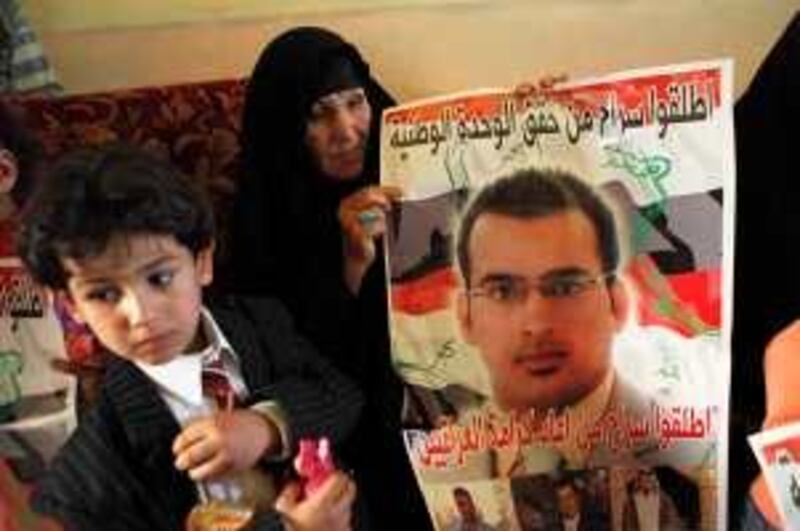Baghdad // When Muntadhar al Zeidi threw his shoes at George W Bush, he earned himself overnight worldwide fame, a place in Iraq's history and, as of Thursday, a three-year prison sentence. The Iraqi journalist's conviction for assaulting a foreign leader is hugely unpopular here, where his act is seen as one of defiance and justified disrespect towards a man who most Iraqis felt had never respected them. In throwing his shoes at the US president during a press conference, he did what others wanted but would never get the chance to do. With his legal defence team planning to appeal against the jail term - it was the minimum sentence for the crime - his supporters hope they will be able to get the punishment annulled. The sentencing followed a lengthy detention after his arrest at a televised news conference in Baghdad in December, when he threw both his shoes at the US president, who was standing alongside the Iraqi prime minister, Nouri al Maliki, at the time. Neither shoe hit Mr Bush. Throwing one's footwear is perhaps the most insulting gesture an Iraqi can give. In the aftermath of the 2003 invasion, Iraqis were shown hitting statues of the deposed president, Saddam Hussein, with their sandals. Three years in any prison, let alone an Iraqi facility, is not going to be comfortable, but the conviction has only served to heighten Zeidi's legend. "It was seen as an act of non-violent resistance and represented the true feelings of the Iraqi people," said Muhammad Faris, editor in chief of the al Mukhtar newspaper in Baghdad. "Al Zeidi had good reasons for wanting to throw the shoes; he has seen the devastation caused by the wars in Iraq, he had seen the poverty, he had seen with his own eyes all of the damage done to the infrastructure of Iraqi society by the US occupation." Mr Faris, 38, insisted that the court had acted unfairly in passing the three-year sentence, and should instead have fined him a token sum. He said he believed the hearings had been influenced by political considerations. Talib Ali Abu Mustag, a neighbourhood leader with the Shiite Sadrist movement, which has long opposed the US presence in Iraq, said the throwing incident had been therapeutic for a traumatised nation. "The Iraqi people hold Bush responsible for a catastrophe," he said in an interview. "He came to Baghdad thinking he would get flowers and thanks; instead he got shoes in his face. It was a gift from the simple people here, the ones who have nothing." Video footage of the incident was shown around the world, and Arabic language channels rarely missed an opportunity to air the clips. "For a while when we saw that, we forgot all of the grief and the suffering," Mr abu Mushtaq said. "For that he is an Iraqi hero. He should not go to prison for that. There are many people here who should probably go to jail, but he is not one of them." Despite the groundswell of support for Zeidi, there are Iraqis who are angry with him. In insulting a foreign leader, even one as reviled as Mr Bush is in Iraq, the Middle East and much of the rest of the world, he broke the Arab tradition of being hospitable to all guests. "It was reckless of him, it was unprofessional and it was an abuse of important Islamic principles," said Adnan al Naimi, 55, a leader in the Badr Organisation in the capital's Karrada district. "He also broke the principles of journalism, and abused his freedoms as a reporter to get into the press conference." nlatif@thenational.ae
Shoe-hurler is a national hero to most Iraqis
Supporters hope they can get Zeidi's sentence annulled as conviction for 'attack' on Bush adds to the legend of journalist.

Editor's picks
More from the national




